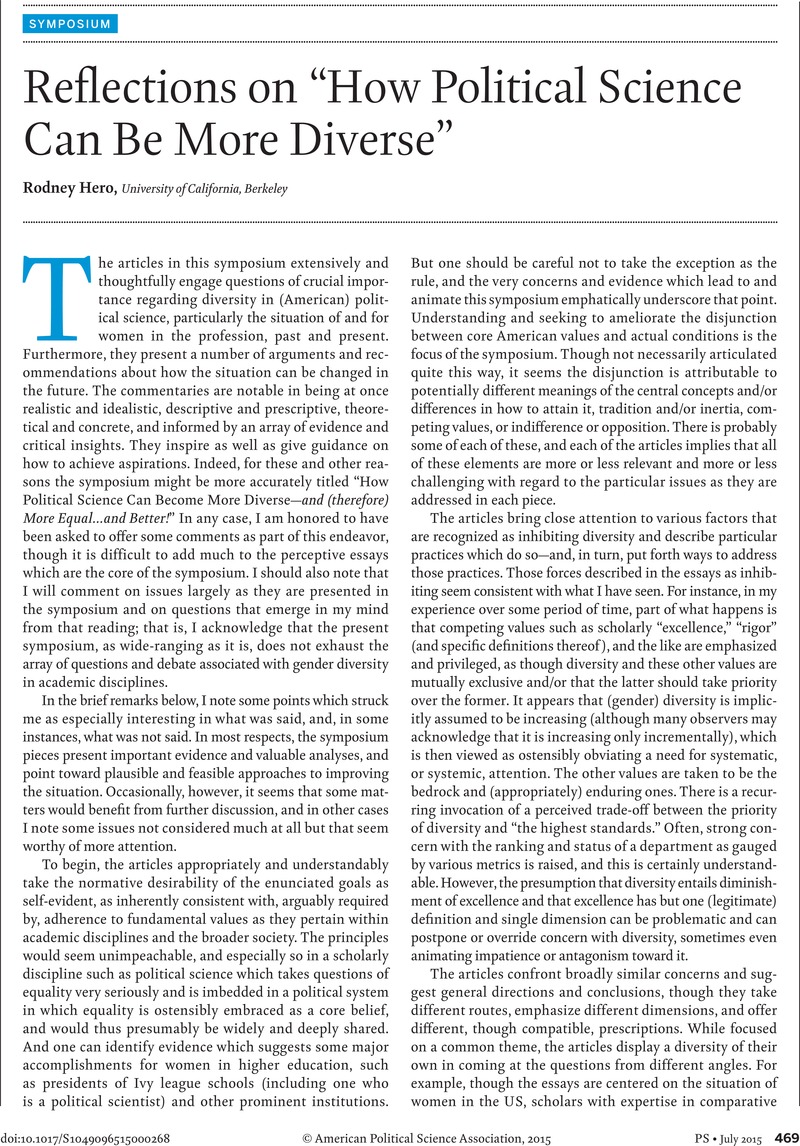Crossref Citations
This article has been cited by the following publications. This list is generated based on data provided by Crossref.
rocha carpiuc, cecilia
2016.
women and diversity in latin american political science.
European Political Science,
Vol. 15,
Issue. 4,
p.
457.
Sterett, Susan M.
2017.
Law's Presence, Law's Absence: Reporting Sexual Harassment and Other Exclusions in the Academy.
SSRN Electronic Journal,
Walker, Christina P.
Towner, Terri L.
and
Hilliker, Lea
2022.
Choosing Reviewers: Predictors of Undergraduate Manuscript Evaluations.
PS: Political Science & Politics,
Vol. 55,
Issue. 3,
p.
539.
Lemi, Danielle Casarez
Scott, Jamil
and
Wong, Diane
2022.
Creating Resource Pathways: Considering Opportunities and Funding Sources for Women of Color in the Discipline.
PS: Political Science & Politics,
Vol. 55,
Issue. 2,
p.
368.
Mitra, Ankushi
McNew-Birren, Jill
and
Nickels, Ashley E.
2024.
Who counts in civically engaged research? Rethinking expertise and authority in politics.
Politics, Groups, and Identities,
p.
1.



